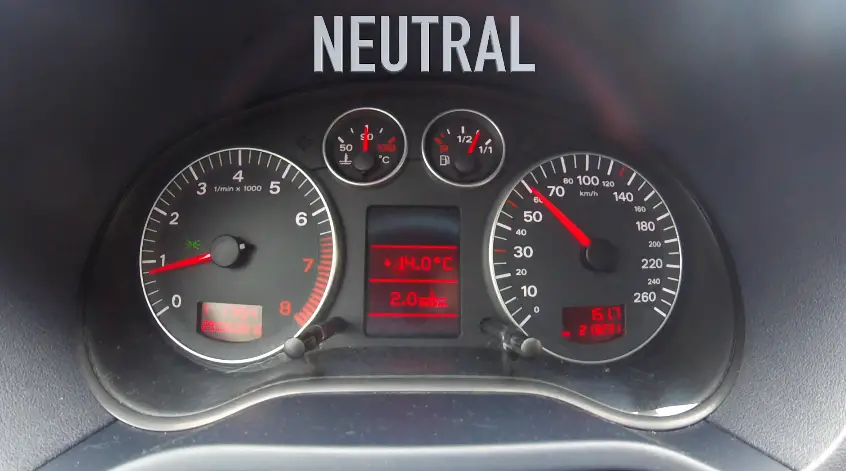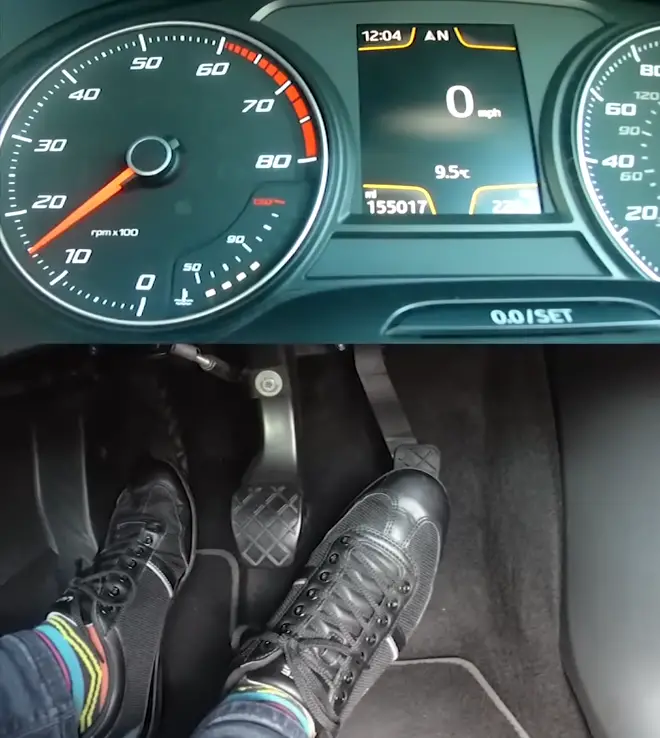Engine braking is not bad for your car when done correctly and can reduce brake wear. However, aggressive downshifting at high RPMs can strain the engine and transmission over time. Use it moderately for the best results.
Engine braking is a technique many drivers use to slow down their vehicle without applying the traditional brake pedal. By downshifting to a lower gear and allowing the engine’s resistance to decelerate the vehicle, engine braking can be an effective way to control speed, especially on steep descents or slippery roads. However, this practice has raised questions about its impact on the engine, transmission, and other components. Is engine braking bad for your car, or is it a useful driving skill that enhances vehicle control and safety?
In this blog post, we’ll take a deep dive into what engine braking is, how it works, the potential benefits, and whether it causes harm to the car.

Contents
What is Engine Braking?
Engine braking refers to the process of slowing down a vehicle by downshifting to a lower gear rather than relying solely on the brake pedal. When you downshift, the engine’s revolutions per minute (RPM) increase, causing the engine to resist forward motion, which slows the car down naturally. This happens because the engine’s compression creates resistance as the throttle closes, decreasing the vehicle’s speed.
There are two types of engine braking:
- Compression Engine Braking (in gasoline engines): When the throttle is closed, air intake is reduced, creating a vacuum that resists the movement of the engine’s pistons, thereby slowing the vehicle.
- Exhaust Braking (common in diesel engines): Diesel engines often use a separate braking system, such as an exhaust brake or Jake brake, to increase back pressure in the exhaust manifold, slowing down the vehicle without applying the wheel brakes.
Is Engine Braking Bad for Car?
The short answer is no, engine braking is not inherently bad for your car when used properly. In fact, it can provide several benefits, such as reducing wear on your brake system and improving control during downhill driving or in slippery conditions. However, as with most driving techniques, improper or excessive use of engine braking can have consequences, especially for certain parts of your vehicle.
Let’s explore the possible benefits and potential risks of engine braking.
Benefits of Engine Braking
Engine braking refers to the process of slowing down a vehicle by releasing the accelerator and allowing the engine to reduce the speed of the vehicle instead of applying the conventional brake system. This technique is commonly used in manual transmission vehicles but can also be effective in certain automatic transmission cars. Below are the key benefits of engine braking:
Reduced Wear on Brake Components
One of the primary advantages of engine braking is that it reduces reliance on your car’s conventional braking system. By using the engine to slow down, you minimize the heat and friction generated by your brake pads and rotors, extending their lifespan. This can be especially beneficial on long descents or during stop-and-go traffic, where frequent braking can lead to brake fade, a condition where the brakes lose effectiveness due to overheating.
Improved Control and Stability
Engine braking can provide better control and stability when driving on steep hills or slippery surfaces like snow, ice, or gravel. Using engine braking helps you maintain a consistent speed without locking up the wheels or causing the vehicle to skid, which can happen if you rely too much on the brake pedal. This is particularly useful for drivers of manual transmission vehicles who need to manage speed in tricky driving conditions.
Fuel Efficiency
In modern vehicles, engine braking can help conserve fuel. When you take your foot off the accelerator, the fuel injectors in many modern engines shut off, cutting fuel flow to the engine and reducing fuel consumption. This is especially true for vehicles equipped with direct fuel injection systems.
Prevention of Brake Overheating
When driving downhill for extended periods, relying solely on the brake pedal can lead to overheating of the brake system. Overheating reduces braking performance and can cause brake fade, making it difficult to stop the car safely. Engine braking prevents this issue by allowing the engine to bear some of the deceleration load, reducing strain on the brake system.

Potential Downsides of Engine Braking
While engine braking has several advantages, it’s not without its risks if overused or done improperly. Here are some potential downsides to keep in mind:
Increased Engine and Transmission Wear
Repeatedly downshifting at high RPMs can place added strain on the engine and transmission, particularly in manual transmission vehicles. This strain occurs because engine braking forces the engine to work harder at higher RPMs, which can accelerate wear on the engine’s components, such as the clutch and gearbox.
However, in normal driving conditions, this risk is minimal if you downshift gradually and avoid revving the engine excessively. The key is to engine brake smoothly and not force the car into a lower gear than necessary.
Reduced Fuel Efficiency in Some Cases
While engine braking can help save fuel in modern vehicles, in older cars with carbureted engines, it can have the opposite effect. In these vehicles, the fuel system may continue to pump fuel into the engine even when engine braking, which can lead to wasted fuel. This is not an issue in vehicles with fuel-injection systems, which cut off fuel during deceleration.
Limited Use in Automatic Transmission Cars
Engine braking is more commonly associated with manual transmission vehicles, where the driver has direct control over gear shifts. In automatic cars, engine braking is more limited, although some vehicles offer features like “sport mode” or manual gear selection that allow for limited engine braking. However, constant downshifting in automatic cars could cause premature wear on the transmission if not done properly.
Possible Damage to Catalytic Converter
Excessive engine braking at very high RPMs can result in unburned fuel entering the exhaust system, potentially damaging the catalytic converter over time. This is more of a risk in vehicles with older or poorly maintained engines, where the fuel mixture may not be optimally controlled during deceleration.
When Should You Use Engine Braking?
Engine braking is most effective and beneficial in specific driving conditions, such as:
- Descending steep hills: Engine braking helps maintain a steady speed without overheating the brakes.
- Driving on slippery roads: Engine braking can prevent skidding by reducing the need for aggressive braking, which could lock the wheels.
- Stop-and-go traffic: Engine braking can be used to gradually slow down without frequent application of the brakes, reducing wear on brake components.
However, it’s important to use engine braking appropriately. Downshifting too aggressively, especially at high speeds, can cause unnecessary wear on your engine and transmission. Instead, downshift gradually, matching the gear to the speed of your vehicle, and avoid forcing the engine to rev too high.
Frequently Asked Questions
Here are some FAQs about engine braking –
1. Is engine braking bad for automatic cars?
Engine braking is not inherently bad for automatic cars, but it is more limited compared to manual transmission vehicles. Some automatic cars have a “manual” mode or “low gear” option that allows for engine braking, but frequent downshifting in an automatic car can increase wear on the transmission if overused.
2. Can engine braking damage the engine?
In normal driving conditions, engine braking does not damage the engine. However, downshifting too aggressively and causing the engine to rev excessively high can put extra strain on the engine and transmission, potentially leading to premature wear.
3. Is engine braking more fuel-efficient?
In modern vehicles with fuel-injected engines, engine braking can improve fuel efficiency by cutting off fuel supply when the accelerator is released. However, in older, carbureted vehicles, engine braking may not be as fuel-efficient, as the fuel system may continue to pump fuel into the engine during deceleration.
4. When should I avoid engine braking?
You should avoid engine braking in situations where it could cause excessive wear on the engine or transmission, such as downshifting too aggressively at high speeds. Additionally, in icy or slippery conditions, relying too much on engine braking could cause loss of control if not done smoothly.
5. Is engine braking illegal in some places?
In some jurisdictions, engine braking (particularly using “Jake brakes” on diesel trucks) is restricted or prohibited due to the noise it generates. These laws usually apply to commercial vehicles rather than passenger cars, but it’s always best to check local regulations.
Conclusion
Engine braking is a useful and generally safe technique when used correctly. It can extend the life of your brakes, improve vehicle control in challenging driving conditions, and potentially save fuel in modern vehicles. However, like any driving technique, it should be used in moderation to avoid placing unnecessary strain on your engine and transmission. For most drivers, engine braking is a valuable tool to enhance driving safety and performance, especially on steep inclines or during long descents.
As long as you downshift smoothly and avoid forcing the engine to operate at excessively high RPMs, engine braking is not bad for your car. In fact, it can be a beneficial part of your overall driving strategy.